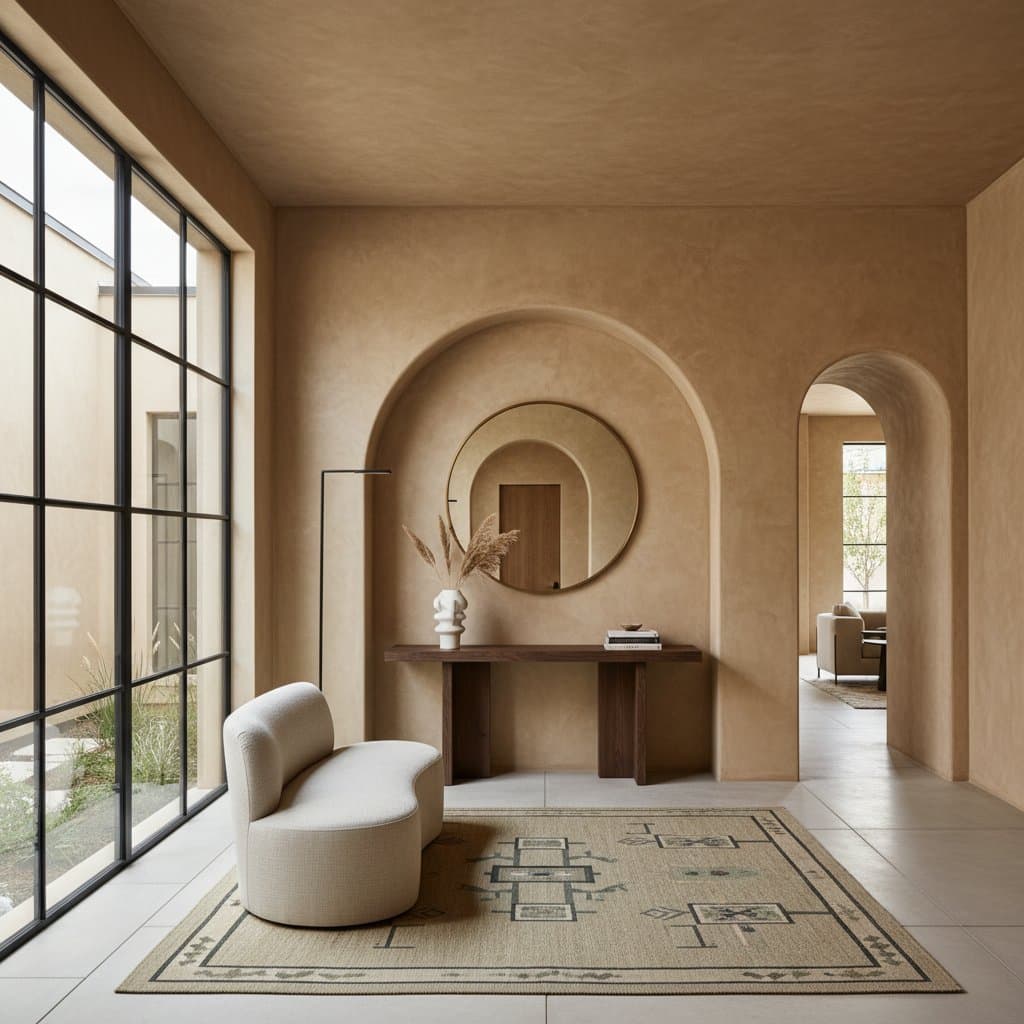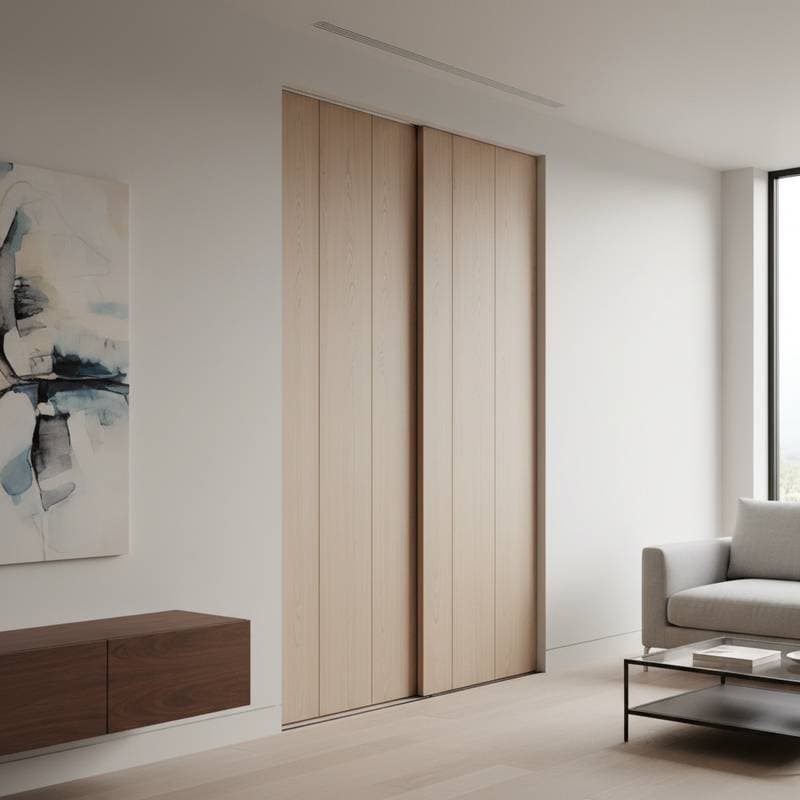Why Japandi Zen Entryways Dominate 2025 Home Design
An entryway serves as the gateway to a home, shaping immediate impressions and daily transitions. In 2025, Japandi Zen style emerges as the preferred choice for entryways that deliver tranquility, elegance, and utility. This approach integrates Japanese minimalism with Scandinavian hygge, resulting in spaces that feel rooted in nature and inviting to all who enter.
Core Principles of Japandi Design
Japandi unites Japanese wabi-sabi, which celebrates imperfection and simplicity, with Scandinavian functionality and coziness. Japanese elements emphasize natural textures and uncluttered forms, while Scandinavian influences introduce soft lighting and ergonomic comfort. The fusion yields entryways that prioritize mindfulness and ease.
Such designs suit entryways by streamlining high-traffic areas into zones of respite. Select pieces that multitask, like a bench with integrated storage, to maintain openness. This method transforms a functional corridor into a thoughtful prelude to the home's interior.
Selecting Materials for Authenticity
Wood remains central to Japandi entryways, with species like oak, ash, and walnut providing subtle warmth and durability. Oak offers a light, versatile grain ideal for doors and flooring, while ash brightens smaller spaces with its pale tones. Walnut introduces deeper hues for added sophistication in larger foyers.
Pair woods with earthy accents such as limestone tiles for thresholds or seagrass mats for subtle texture. These choices ground the space and promote a tactile experience. Opt for low-VOC finishes to preserve air quality and align with sustainable practices.
| Material | Initial Cost | Lifespan | Maintenance | Best For |
|---|---|---|---|---|
| Oak | Moderate | 50+ years | Annual oiling | Versatile, light-filled areas |
| Ash | Moderate | 40+ years | Dusting and wiping | Compact, airy entryways |
| Walnut | Higher | 60+ years | Minimal polishing | Luxurious, spacious halls |
Achieving Harmony with Restraint
Simplicity defines Japandi Zen entryways; curate only essential items to avoid visual overload. Install a single, sturdy bench for seating and a nearby hook rail for coats to facilitate smooth routines. Position these elements along walls to preserve central flow.
Illuminate thoughtfully with layered sources: recessed ceiling lights for even coverage and a slim floor lamp for ambient glow. Maximize daylight through frosted glass inserts in doors, which diffuse light while ensuring privacy. This setup enhances the serene mood without harsh contrasts.
Neutral tones form the foundation, using off-whites, warm beiges, and cool grays to unify surfaces. Introduce subtle contrast via matte black pulls on cabinetry or thin metal frames around mirrors. These details sharpen focus while upholding the overall peace.
Integrating Practical Features
Japandi entryways excel in supporting everyday demands through smart organization. Choose cabinetry with soft-close mechanisms and pull-out trays to store keys, mail, and accessories out of sight. Wall-mounted shelves at varying heights accommodate seasonal items without dominating the area.
Incorporate multifunctional furniture, such as a console table with hidden compartments, to handle bags and umbrellas efficiently. These solutions minimize morning chaos and keep surfaces clear. Regular upkeep proves simple, as smooth woods resist stains and require only gentle cleaning.
Sustainability and Durability Benefits
Beyond aesthetics, Japandi designs promote longevity and environmental responsibility. Sourced from responsibly managed forests, materials like FSC-certified oak endure decades with proper care. Timeless neutrals allow seamless updates to surrounding rooms without full overhauls.
This style reduces waste by discouraging trends in favor of enduring pieces. Homeowners benefit from lower long-term costs, as robust construction withstands wear. The result supports mindful consumption in a fast-paced world.
Tailoring to Your Space
Assess your entryway's dimensions and usage patterns before selecting elements. For narrow areas, employ tall, slim cabinets and pale woods to create an illusion of width. Expansive foyers benefit from broader benches and textured rugs to define zones.
Consult professionals experienced in custom millwork to ensure precise fits. Measure twice for door alignments and test lighting mockups on-site. Focus on scalability so the design evolves with family needs.
Finalizing and Maintaining Your Design
Coordinate all components during planning: align wood grains across doors and trim, and select hardware in brushed nickel for cohesion. Post-installation, apply protective sealants to floors and inspect joins for stability.
Maintain the space by wiping surfaces weekly and rotating accessories seasonally. This routine preserves the Zen essence, ensuring the entryway remains a welcoming haven year after year.






